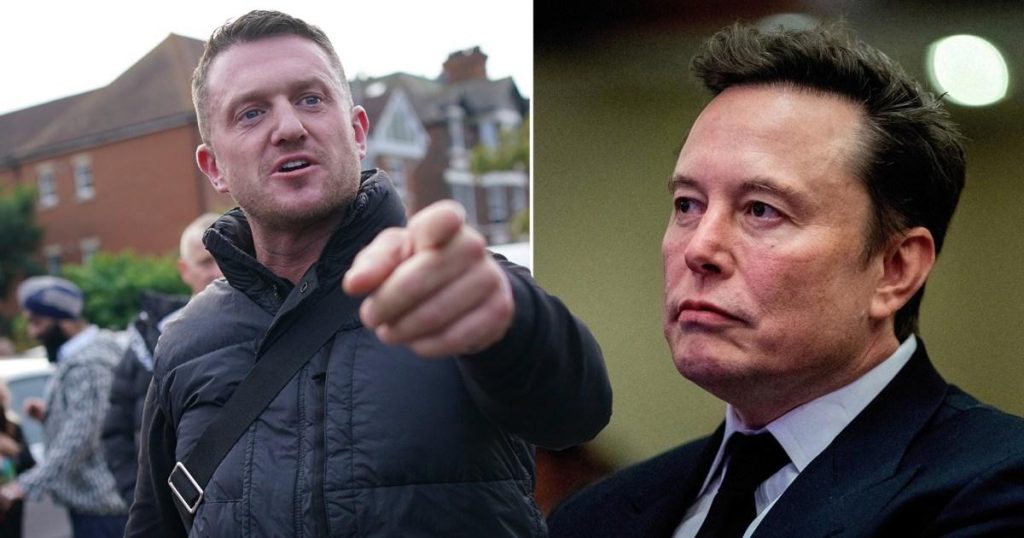Elon Musk’s Controversial Support for Tommy Robinson and Criticism of UK Political Figures Sparks Debate
Elon Musk, the CEO of Tesla and SpaceX, has ignited a firestorm of controversy by publicly supporting the imprisoned far-right activist Tommy Robinson, whose real name is Stephen Yaxley-Lennon. Through a series of posts on X (formerly Twitter), Musk has called for Robinson’s release, characterizing him as a victim of injustice and censorship for purportedly "telling the truth." This stance has drawn widespread condemnation, given Robinson’s history of inflammatory anti-Islam rhetoric and involvement with the extremist English Defence League (EDL). Musk’s intervention has resurrected debates about free speech, political bias, and the complex interplay between social media platforms and public discourse.
Robinson’s current imprisonment stems from a 2022 conviction for contempt of court, specifically for breaching a court order prohibiting him from repeating defamatory allegations against a Syrian refugee. This incident is not isolated but rather part of a pattern of legal challenges faced by Robinson, including a previous conviction for contempt related to his live-streaming of court proceedings, which risked prejudicing a trial. He has also been sued successfully for defamation by the same Syrian refugee. His history of legal battles and his association with far-right ideologies have made him a polarizing figure.
Musk’s support for Robinson appears rooted in the belief that he is being unjustly silenced for exposing what Musk perceives as a cover-up of child sexual exploitation scandals, particularly the Rochdale grooming scandal. Musk links this perceived cover-up to the Labour Party and specifically to Sir Keir Starmer, the current Labour leader, who previously served as Director of Public Prosecutions. Musk has publicly criticized Starmer, suggesting his involvement in the alleged cover-up. This has further fueled the controversy, with critics accusing Musk of promoting conspiracy theories and amplifying far-right narratives.
Beyond Robinson, Musk has also targeted Jess Phillips, the UK’s Safeguarding Minister. He has called for her imprisonment, alleging that she is complicit in the alleged cover-up of child abuse. This accusation follows Phillips’ decision to reject calls for a government-led inquiry into child sexual exploitation in Oldham, deferring instead to the local council. While Phillips’ decision has drawn criticism from some quarters, including some Conservative politicians, Musk’s call for her imprisonment represents a significant escalation of rhetoric.
Musk’s pronouncements on sensitive and complex issues have raised concerns about the responsible use of social media platforms by individuals with significant influence. His statements, characterized by strong language and often lacking nuance, have been accused of amplifying misinformation and promoting harmful stereotypes. Critics argue that Musk’s actions, far from championing free speech, contribute to the spread of disinformation and create a climate conducive to harassment and hate speech.
The controversy surrounding Musk’s support for Tommy Robinson and his attacks on UK politicians underscores the ongoing debate about the role of social media in shaping public discourse. It raises questions about the balance between free speech and the responsibility to prevent the spread of harmful content. Musk’s position has further complicated this debate, highlighting the challenges of navigating the complex intersection of technology, politics, and social responsibility. The incident also serves as a stark reminder of the potential for social media platforms to be used to amplify extremist voices and disseminate divisive narratives. It remains to be seen how this controversy will unfold and what impact it will have on the broader conversation about online speech and accountability.











